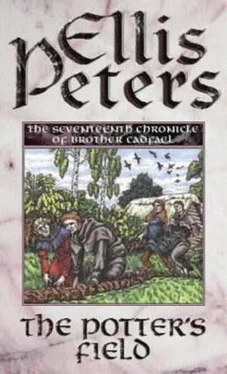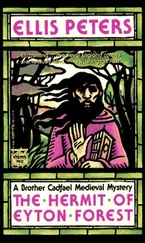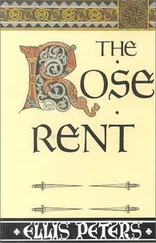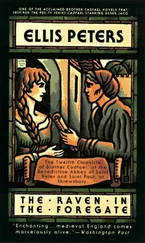Ellis Peters - The Potter's Field
Здесь есть возможность читать онлайн «Ellis Peters - The Potter's Field» весь текст электронной книги совершенно бесплатно (целиком полную версию без сокращений). В некоторых случаях можно слушать аудио, скачать через торрент в формате fb2 и присутствует краткое содержание. Жанр: Исторический детектив, на английском языке. Описание произведения, (предисловие) а так же отзывы посетителей доступны на портале библиотеки ЛибКат.
- Название:The Potter's Field
- Автор:
- Жанр:
- Год:неизвестен
- ISBN:нет данных
- Рейтинг книги:4.5 / 5. Голосов: 2
-
Избранное:Добавить в избранное
- Отзывы:
-
Ваша оценка:
- 100
- 1
- 2
- 3
- 4
- 5
The Potter's Field: краткое содержание, описание и аннотация
Предлагаем к чтению аннотацию, описание, краткое содержание или предисловие (зависит от того, что написал сам автор книги «The Potter's Field»). Если вы не нашли необходимую информацию о книге — напишите в комментариях, мы постараемся отыскать её.
The Potter's Field — читать онлайн бесплатно полную книгу (весь текст) целиком
Ниже представлен текст книги, разбитый по страницам. Система сохранения места последней прочитанной страницы, позволяет с удобством читать онлайн бесплатно книгу «The Potter's Field», без необходимости каждый раз заново искать на чём Вы остановились. Поставьте закладку, и сможете в любой момент перейти на страницу, на которой закончили чтение.
Интервал:
Закладка:
There was a long moment of silence while the silversmith looked back at him, eye to eye, with intelligent speculation sharpening the lean lines of his face. It is possible that he was considering retreat from any further confidence, for want of knowing what might result from his answers for a young man perhaps innocently en-trammelled in some misfortune no fault of his own. Men of business learn to be chary of trusting too many too soon. But if so, he discarded the impulse of denial, after studying Hugh with close attention and arriving, it seemed, at a judgement.
‘Come within!’ he said then, with equal deliberation and equal certainty. And he turned towards the door from which he had emerged, inviting Hugh with a gesture of his hand. ‘Come! Let me hear more. Now we have gone so far, we may as well go further together.’
Chapter Eleven
SULIEN HAD PUT off the habit, but the hourly order that went with it was not so easy to discard. He found himself waking at midnight for Matins and Lauds, and listening for the bell, and was shaken and daunted by the silence and isolation where there should have been the sense of many brothers stirring and sighing, a soft murmur of voices urging the heavy sleepers, and in the dimness at the head of the night stairs the glow of the little lamp to light them down safely to the church. Even the freedom of his own clothes sat uneasily on him still, after a year of the skirted gown. He had put away one life without being able to take up the old where he had abandoned it, and making a new beginning was unexpected effort and pain. Moreover, things at Longner had changed since his departure to Ramsey. His brother was married to a young wife, settled in his lordship, and happy in the prospect of an heir, for Jehane was pregnant. The Longner lands were a very fair holding, but not great enough to support two families, even if such sharing had ever promised well, and a younger son would have to work out an independent life for himself, as younger sons had always had to do. The cloister he had sampled and abandoned. His family bore with him tolerantly and patiently until he should find his way. Eudo was the most open and amiable of young men, and fond of his brother. Sulien was welcome to all the time he needed, and until he made up his mind Longner was his home, and glad to have him back.
But no one could quite be sure that Sulien was glad. He filled his days with whatever work offered, in the stables and byres, exercising hawk and hound, lending a hand with sheep and cattle in the fields, carting timber for fence repairs and fuel, whatever was needed he was willing and anxious to do, as though he had stored within him such a tension of energy that he must at all costs grind it out of his body or sicken with it.
Withindoors he was quiet company, but then he had always been the quiet one. He was gentle and attentive to his mother, and endured stoically hours of her anguished presence, which Eudo tended to avoid when he could. The steely control with which she put aside every sign of pain was admirable, but almost harder to bear than open distress. Sulien marvelled and endured with her, since there was nothing more he could do for her. And she was gracious and dignified, but whether she was glad of his company or whether it added one more dimension to her burden, there was no telling. He had always supposed that Eudo was her favourite and had the lion’s share of her love. That was the usual order of things, and Sulien had no fault to find with it.
His abstraction and quietness were hardly noticed by Eudo and Jehane. They were breeding, they were happy, they found life full and pleasant, and took it for granted that a youth who had mistakenly wasted a year of his life on a vocation of which he had thought better only just in time, should spend these first weeks of freedom doing a great deal of hard thinking about his future. So they left him to his thoughts, accommodated him with the hard labour he seemed to need, and waited with easy affection for him to emerge into the open in his own good time.
He rode out one day in mid-November with orders to Eudo’s herdsman in the outlying fields of Longner land to eastward, along the River Tern, almost as far afield as Upton, and having discharged his errand, turned to ride back, and then instead wheeled the horse again and rode on very slowly, leaving the village of Upton on his left hand, hardly knowing what it was he had in mind. There was no haste, all his own industry could not convince him that he was needed at home, and the day, though cloudy, was dry, and the air mild. He rode on, gradually drawing a little further from the river bank, and only when he topped the slight ridge which offered the highest point in these flat, open fields did he realise where he was heading. Before him, at no great distance, the roofs of Withington showed through a frail filigree of naked branches, and the squat, square tower of the church just rose above the grove of low trees.
He had not realised how constantly she had been in his mind since his visit here, lodged deep in his memory, unobtrusive but always present. He had only to close his eyes now, and he could see her face as clearly as when she had first caught the sound of his horse’s hooves on the hard soil of the courtyard, and turned to see who was riding in. The very way she halted and turned to him was like a flower swaying in the lightest of winds, and the face she raised to him was open like a flower, without reserve or fear, so that at that first glance he had seemed to see deep into her being. As though her flesh, though rounded and full and firm, had been translucent from without and luminous from within. There had been a little pale sunshine that day, and it had gained radiance from her eyes, russet-gold eyes, and reflected light from her broad brow under the soft brown hair. She had smiled at him with that same ungrudging radiance, shedding warmth about her to melt the chill of anxiety from his mind and heart, she who had never set eyes on him before, and must not be made ever to see him or think of him again.
But he had thought of her, whether he willed it or not.
He had hardly realised now that he was still riding towards the further edge of the village, where the manor lay. The line of the stockade rose out of the fields, the steep pitch of the roof within, the pattern of field strips beyond the enclosure, a square plot of orchard trees, all gleaned and almost leafless. He had splashed through the first stream almost without noticing, but the second, so close now to the wide-open gate in the manor fence, caused him to baulk suddenly and consider what he was doing, and must not do, had no right to do.
He could see the courtyard within the stockade, and the elder boy carefully leading a pony in decorously steady circles, with the small girl on its back. Regularly they appeared, passed and vanished, to reappear at the far rim of their circle and vanish again, the boy giving orders importantly, the child with both small fists clutched in the pony’s mane. Once Gunnild came into view for a moment, smiling, watching her youngest charge, astride like a boy, kicking round bare heels into the pony’s fat sides. Then she drew back again to clear their exercise ground, and passed from his sight. With an effort, Sulien came to himself, and swung away from them towards the village.
And there she was, coming towards him from the direction of the church, with a basket on her arm under the folds of her cloak, and her brown hair braided in a thick plait and tied with a scarlet cord. Her eyes were on him. She had known him before ever he was aware of her, and she approached him without either hastening or lingering, with confident pleasure. Just as he had been seeing her with his mind’s eye a moment earlier, except that then she had worn no cloak, and her hair had been loose about her shoulders. But her face had the same open radiance, her eyes the same quality of letting him into her heart.
Читать дальшеИнтервал:
Закладка:
Похожие книги на «The Potter's Field»
Представляем Вашему вниманию похожие книги на «The Potter's Field» списком для выбора. Мы отобрали схожую по названию и смыслу литературу в надежде предоставить читателям больше вариантов отыскать новые, интересные, ещё непрочитанные произведения.
Обсуждение, отзывы о книге «The Potter's Field» и просто собственные мнения читателей. Оставьте ваши комментарии, напишите, что Вы думаете о произведении, его смысле или главных героях. Укажите что конкретно понравилось, а что нет, и почему Вы так считаете.












